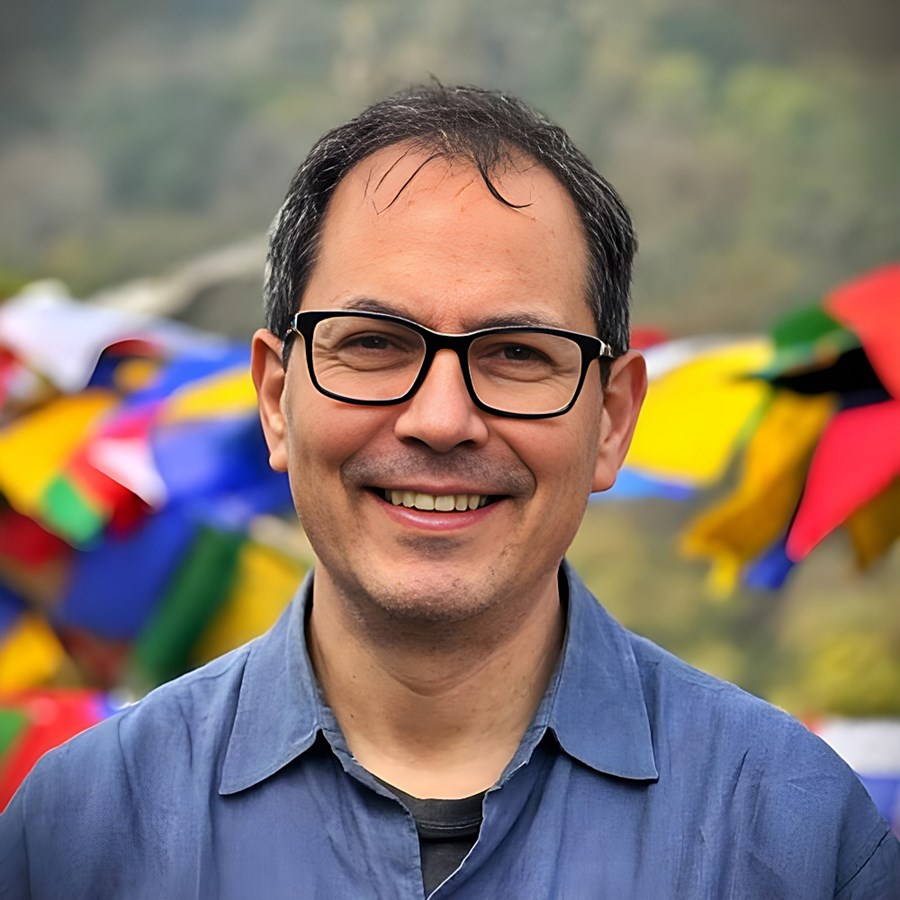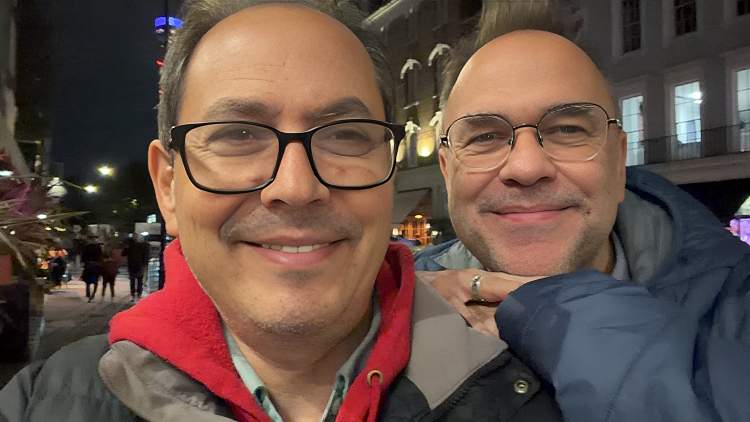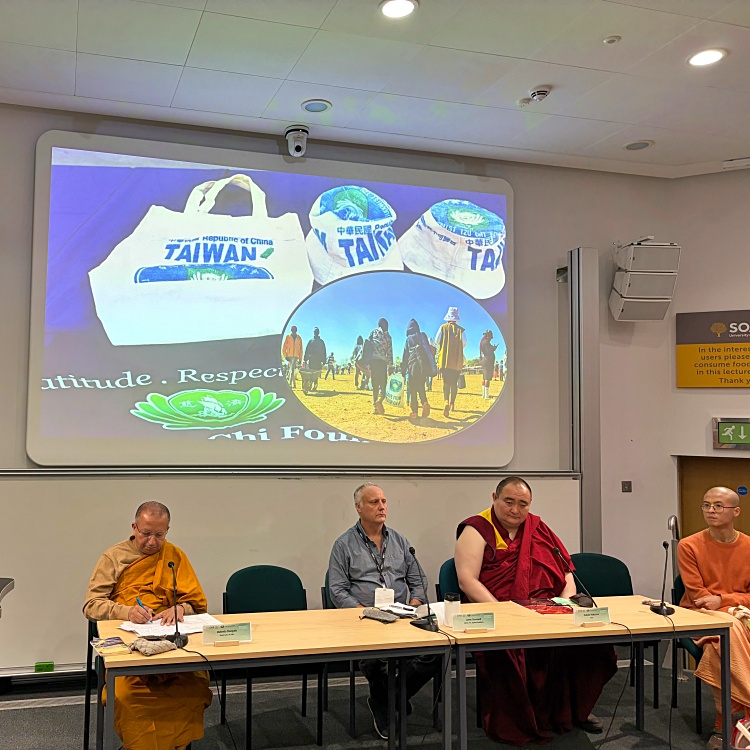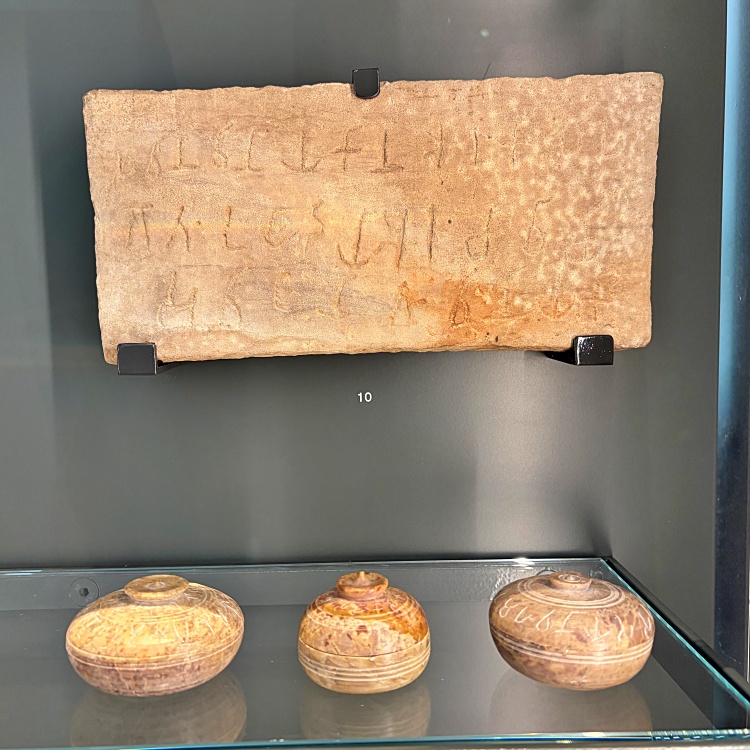
William Edelglass, Director of Studies at the Barre Center for Buddhist Studies, recently participated in the international conference From Green Living to Buddhist Environmentalism: Exploring Buddhism for a Sustainable Future at the School of Oriental and African Studies (SOAS), University of London, held October 18–19, 2025.
The conference brought together scholars from across five continents to explore how Buddhist teachings and practices can support environmental protection and address the climate crisis. Participants examined themes ranging from eco-dharma and Buddhist environmental justice to altruistic economies and inter-religious dialogue on sustainability. Sponsored by the Tzu Chi Foundation and organized by the Centre for Buddhist Studies at SOAS, the event highlighted both academic research and the lived experience of Buddhist communities engaging in environmental action.
William chaired the panel Dharma, Meditation, and Mindfulness, and he later presented his paper, “Ambedkar, Water, Equality: Buddhist Environmental Justice in India,” as part of the session Proposals from Modern Leaders. His work contributes to a multi-year international research project investigating “the potential of Buddhism to advance the practice of environmental protection and mitigate climate change.” The project brings together scholars and Buddhist practitioners working at the intersection of ecology, ethics, and social engagement.
Ambedkar, the great leader of India’s Dalits, was the primary author of the Indian Constitution. His conversion to Buddhism in the 1950s led to the conversion of millions of other outcaste people. “Ambedkar understood,” William argues in his paper, “that clean water, good agricultural lands to grow food and sustain family and community, forests for wood and fields for grazing are always conditioned by questions of recognition and participation in social, economic, and political spheres.” As William shows, for Ambedkar, “Buddhism calls for us to reconstruct the world and its structures, so the very landscape itself, the environments in which we live, work, and play manifest morality and justice.”
While in London, William also visited the British Museum, where he encountered a remarkable artifact—a panel of a soapstone box from Sāñcī that may once have held the relic of Sāriputta, the Buddha’s great disciple, now enshrined in the stūpa at BCBS. Seeing the soapstone panel reminded William of BCBS’s many connections to classical Buddhist traditions and the living continuity of the Dharma across time and place.
Through his participation, William continues to integrate BCBS into international dialogues at the forefront of Buddhist studies and environmental ethics, helping to support a more just and sustainable future.







